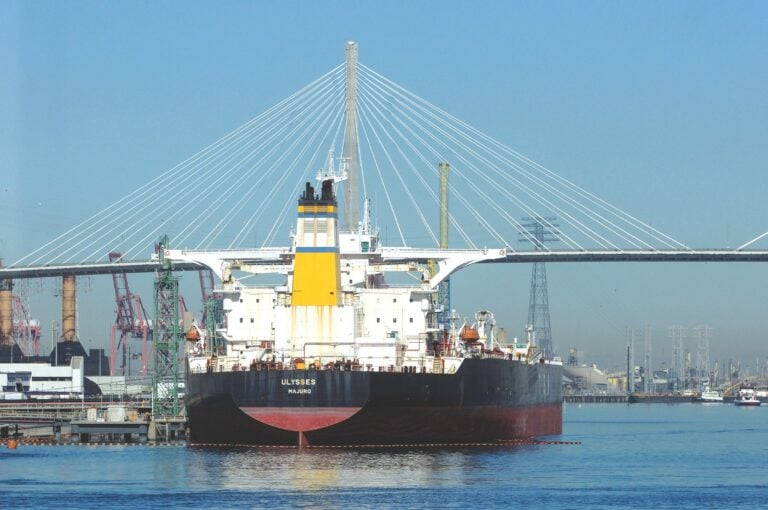
It was a tale of two ports in June.
On one hand, the Port of Los Angeles recorded its fourth consecutive month of increased cargo flow and came within a few percentage points of matching last year’s total. On the other hand, the Port of Long Beach saw a decline by more than a quarter from its record-setting numbers from June of last year.
In any case, officials at both ports are eager to see the second half of the year play out now that the International Longshore and Warehouse Union and the Pacific Maritime Association have a tentative labor agreement in place after 12 months of negotiations. Both entities consider the unsteady labor situation to be the primary factor in a significant downturn of imports that began in the fall.
“Collective bargaining is hard, yet the system worked,” Gene Seroka, director of the Port of L.A., said in his monthly media briefing. “While I’m thrilled we have a tentative deal, now the real work begins and it will be an uphill climb. We need an industry-led coalition that is focused on bringing cargo that has shifted to other gateways back to the West Coast and specifically Los Angeles.”
The Port of L.A. moved a total of 833,035 TEUs — 20-foot equivalent units, the standard measurement of cargo that goes through a port — in June, representing just a 5% drop from 876,611 TEUs the prior year. The Port of Long Beach moved 597,076 TEUs, which was a steep drop of 28.5% from 835,412.
For both ports, the June 2022 figures represent their highest for the month historically. On the year, the Port of L.A. has handled 4.14 million TEUs of cargo and the Port of Long Beach has handled 3.73 million TEUs, representing a decrease of around 24% and 26%, respectively.
In terms of imports, there were 435,307 TEUs to the Port of L.A. — a 2% drop — and 274,325 TEUs to the Port of Long Beach — a 34% decline. Long Beach, much like L.A., has consistently improved its numbers throughout the year, so the sudden drop in June is not indicative of a trend at the moment.
Mario Cordero, executive director at the Port of Long Beach, echoed Seroka in looking to an improved environment for the future now that a labor agreement has been hammered out. Historically, it has taken around three months for the parties to review and ratify labor contracts once a tentative agreement has been reached, which would put a prospective formal approval in mid-September.
“We are hopeful to obtain a greater percentile of market share,” Cordero said. “We remain confident that our reliability, efficiency and unparalleled service will attract additional trade and economic activity to our port.”
The tentative labor agreement likely has turned down the temperature around both ports. Seroka punctuated its importance at his media briefing by highlighting that more than 50 media outlets were represented for the call, which featured acting Labor Secretary Julie Su as a guest for her “pivotal role” in helping to broker the agreement. He added that cooling inflation and other indicators, such as a strong Amazon Prime day, were encouraging economic signs for the rest of the year, and despite nine canceled sailings — when a regularly scheduled ship does not make its trip — this month, he remained optimistic.
Seroka was hesitant to ascribe continued TEU growth at L.A. to winning back any former customers, at least for now. In addition to the unresolved labor issues, experts have highlighted the improved infrastructure and proximity to manufacturing as perks that have attracted shippers and exporters to the Gulf and East coasts.
“The cargo was seasonal — it’s the back-to-school and starting to see the early reaches of peak season,” he said, referencing the surge in imports ahead of the winter holidays. “About 15% of our cargo left during these negotiations, really starting last August. History has shown that some of it will stick to those East and Gulf coast ports, so our job now is to be absolutely relentless in going after every pound of freight possible.”
